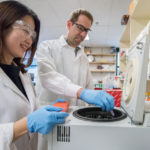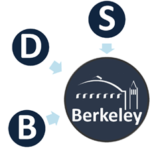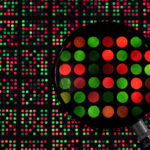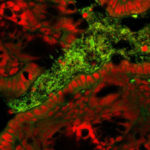A team of scientists has developed an unsupervised multi-scale machine learning technique that can automatically and specifically capture biomedical events or concepts directly from raw data. They have initiated the multi-disciplinary platform: Berkeley Biomedical Data Science Center (BBDS), which aims at facilitating and nurturing data-intensive biomedical science. They will apply this technique to three ongoing projects related to cancer risk assessment and diagnosis, as well as personalized medicine.
What a Genome-Wide Screening Can Reveal about Cancer Survival
Berkeley Lab researchers in the Biological Systems and Engineering Division have developed a 12-gene score tied to the odds of relapse-free breast cancer survival. The scoring system is based on an analysis of large genomic datasets and patient data, and it could eventually be developed for clinical use.
Antoine Snijders, research scientist, led the team that included Xuan Mao, Matthew Lee, Jeffrey Zhu and Carissa Zhu, all students from Campolindo High School in Moraga, California, who worked as interns at Berkeley Lab in 2016. “Berkeley Lab is committed to training the next generation of future cancer research scientists,” said Snijders. Under the supervision of Snijders, they led the programming effort and computational analysis that helped identify the relevant genes and that formed the basis of the scoring system. Snijders said, “It is exciting to see how these students contributed their computational skills to breast cancer research.” Read more in the Berkeley Lab News Center.
Thirdhand Smoke Affects Weight, Blood Cell Development in Mice
 Berkeley Lab researchers found that the sticky residue left behind by tobacco smoke led to changes in weight and blood cell count in mice. These latest findings add to a growing body of evidence that thirdhand smoke exposure may be harmful.
Berkeley Lab researchers found that the sticky residue left behind by tobacco smoke led to changes in weight and blood cell count in mice. These latest findings add to a growing body of evidence that thirdhand smoke exposure may be harmful.
Researchers from the Biosciences Biological Systems and Engineering Division (BSE) and the Energy Technologies Area (ETA) teamed up with scientists at UC San Francisco and Nanjing Medical University for the study. The findings, reported in a Feb. 3 paper in Scientific Reports, suggest that the dangers associated with smoking continue long after the cigarette is snuffed out. Read more in the Berkeley Lab News Center.
Genes, Early Environment Sculpt the Gut Microbiome
Researchers from Berkeley Lab’s Biological Systems & Engineering (BSE) Division and the Department of Energy’s Pacific Northwest National Laboratory found that genes and early environment play big roles in shaping the gut microbiome. The microbes retained a clear “signature” formed where the mice were first raised, and the characteristics carried over to the next generation. The findings, published on November 28 in the journal Nature Microbiology, could potentially be used to develop designer diets optimized to an individual’s microbiome.
The BSE research team included first author Antoine Snijders, corresponding author Jian-Hua Mao, and Sasha Langley. Read more on the Berkeley Lab News Center.
Division Leadership Team Changes in EGSB and BSE
The Biosciences Area is pleased to announce that Adam Deutschbauer and Diane Dickel have agreed to take on new leadership positions in the Environmental Genomics & Systems Biology (EGSB) Division. Deutschbauer, previously the department head of Functional Genomics, is rising to the position of EGSB co-deputy for science, and Dickel will assume the role of … Read more »
- « Previous Page
- 1
- …
- 4
- 5
- 6
- 7
- Next Page »
Was this page useful?







